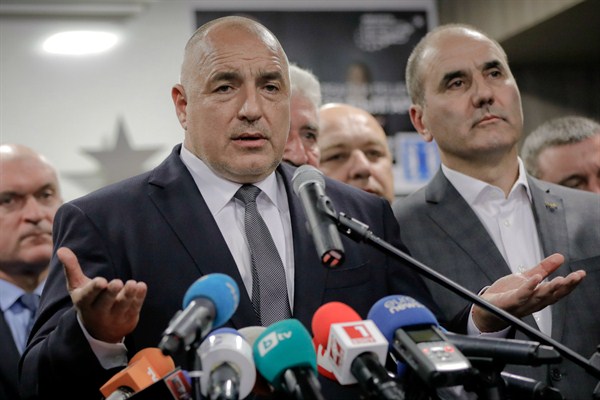Bulgaria may have had three parliamentary elections in four years, but there is little sense of change in the air. After the latest vote on March 26, the next government seems set to be another unstable coalition patching together various egos, business interests and veneers of political philosophies.
While EU wannabes Serbia and Macedonia continue to attract criticism and scrutiny for weighing Western and Russian interests against each other, member state Bulgaria will continue its own balancing act. Perhaps the biggest change after last month’s election is that tentatively reformist parties are now shut out of parliament, while the mainstream groups have felt the need to ape the nationalist language of the increasingly vocal far right.
The final result was a triumph of sorts for Boyko Borisov, who seems almost certain to return as prime minister, after he announced that he would stand down last November, which triggered the early election. Borisov’s ostensibly right-of-center Citizens for the European Development of Bulgaria—or GERB, also meaning “coat of arms” in Bulgarian—won with 33.54 percent of the vote. The Bulgarian Socialist Party, or BSP, which had hoped to beat Borisov after a recent resurgence, came in second with 27.93 percent. Borisov resigned last year after GERB’s candidate in November’s presidential election lost to Rumen Radev, a former air force major general backed by the BSP.

